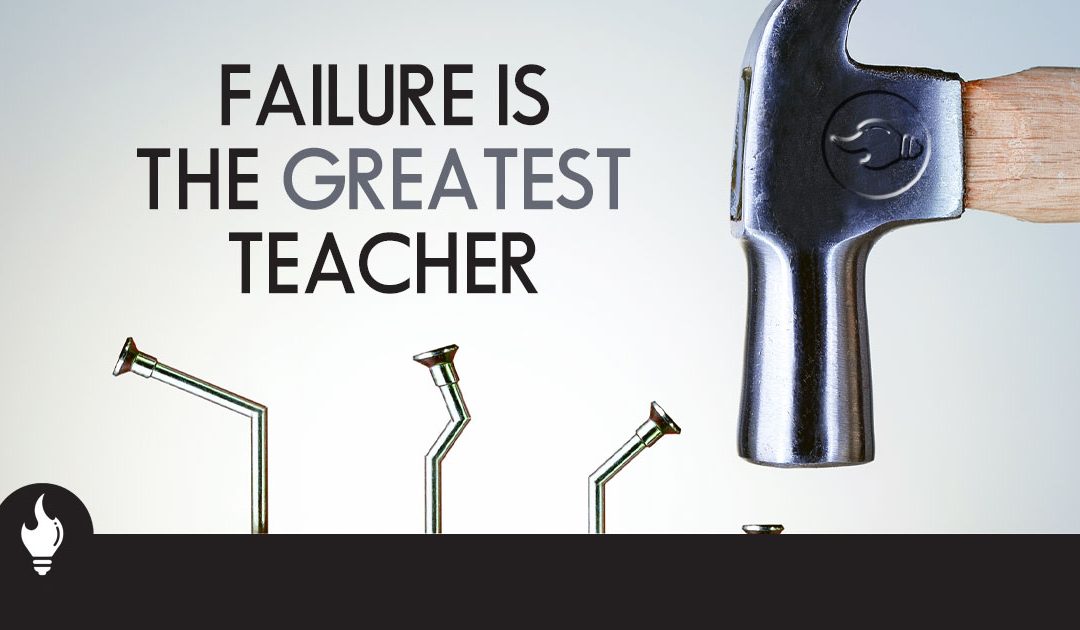No one ever said running a business was easy. In fact, it can be downright difficult at times. But that doesn’t mean you should give up when things get tough. Instead, view each challenge as an opportunity to learn and grow. And if you do happen to make a mistake along the way, don’t despair — failure can be the greatest teacher of all. Here’s how businesses can learn from their mistakes and move on to greater success.
What is failure?
In business, failure can take many forms. From small mistakes due to miscommunication or oversight to filing for bankruptcy due to poor planning and bad luck, everyone has experienced some type of failure along their journey. Of course, it is through these so-called failures that the most successful entrepreneurs learn the skills necessary to avoid similar scenarios in the future. Ultimately, failure is a part of life whether on a small or large scale, but it should be embraced as an eventuality that can ultimately provide valuable insights and experience for anyone involved in any business venture.
Many successful businesses were built on failure
It’s no secret that not every business succeeds, and there are many examples of businesses that have tried, but failed. Some, however, learn from their mistakes and persevere. Despite creating a car for the masses, Henry Ford’s first car company went bankrupt in 1901; a year later, he gave up on the second company bearing his name (which would go on to become Cadillac), before founding the Ford Motor Company in 1903 and releasing the wildly successful Model T in 1908.
Before revolutionizing the auto industry, Ford worked for Thomas Edison, who failed so many times he famously quipped, “I have not failed. I’ve just found 10,000 ways that won’t work.” Milton Hershey closed shop on two candy businesses before finding success, Henry Heinz’s company went bankrupt in 1875 before he went on to create his famous ketchup, and Walt Disney dissolved two companies and allegedly resorted to eating dog food to survive before going on to found what would eventually become the world’s largest entertainment and media conglomerate.
Perhaps the most curious lesson comes from James Dyson who repeatedly failed in producing a bagless vacuum cleaner for 21 years before finally succeeding. It just goes to show that successes don’t come in moments; they require hard work, dedication, and above all else, patience!
“I have not failed. I’ve just found 10,000 ways that won’t work.”
Thomas Edison
So why do businesses fail and what can be done to prevent it?
Running a successful business can be tricky, and unfortunately, some businesses fail. There are many reasons why a business might fail: lack of resources, financial problems, inappropriate staff allocation and an insufficient understanding of the target market can all lead to business failure. To prevent it from happening in the first place, proper planning is essential: sound financial management, a good team, understanding your target market, and reaching your customers are all necessary components. Choosing the right technology and solutions to help manage each aspect can reduce risk and empower businesses with robust solutions. Ultimately successful businesses require hard work, dedication, and good decision-making.
Learn from your mistakes
Making mistakes is inevitable in business, but learning from them is essential. While it can be tempting to move on to the next task without reflecting on what happened and taking something away from the experience, this approach will not help a business in the long run. Instead, as soon as a mistake has been made it should be noted and discussed frankly. It’s important for key questions to be asked: what went wrong? What could have been done differently? How can this mistake be avoided in the future? Taking time out to properly analyze a mistake and consider these kinds of questions can help businesses improve their processes and decisions, ultimately enabling them to make more informed choices.
Embrace failure as a learning opportunity
Failure is an inherent part of any journey, but it’s important for businesses to understand that failure can be a pathway to success. By embracing failure as a learning opportunity, businesses can test out new strategies, gain valuable insight along the way, and improve their operation and marketing approaches in the future. Think outside the box, challenge conventional wisdom, and use failure as an asset rather than a liability. Failures are bound to happen as long as you’re pushing boundaries and that’s not something businesses should be afraid of doing.
From the demise of Blockbuster to the bankruptcy of Lehman Brothers, failure has been a reality for businesses throughout history and will undoubtedly happen in one form or another. Business owners should accept failure as a normal part of doing business and use what they’ve learned from their mistakes as an opportunity to further refine their strategies and make more informed decisions. Recognizing potential weak spots ahead of time and addressing them proactively allows businesses to stay ahead of potential problems rather than having to scramble once they become bigger issues.
While no business is immune to failure, there are ways to avoid it. Companies need to take calculated risks but also have strong relationships with partners, suppliers & customers. While business owners should strive to avoid missteps, properly utilizing failure can result in much better outcomes for organizations down the line. If your business’ marketing has been less than successful and you’re looking for guidance on how to best reach your customers, see how Ignite Marketing can help—we’ll help you avoid the marketing failures we’ve seen and learned from.

